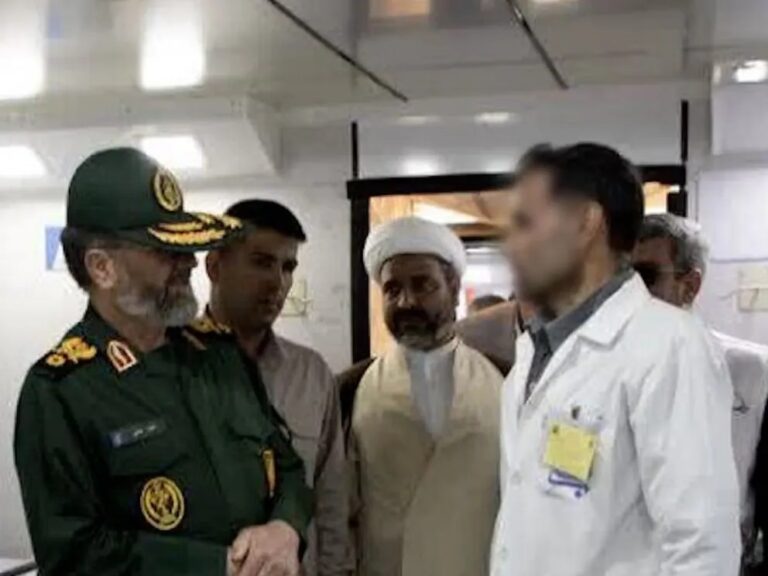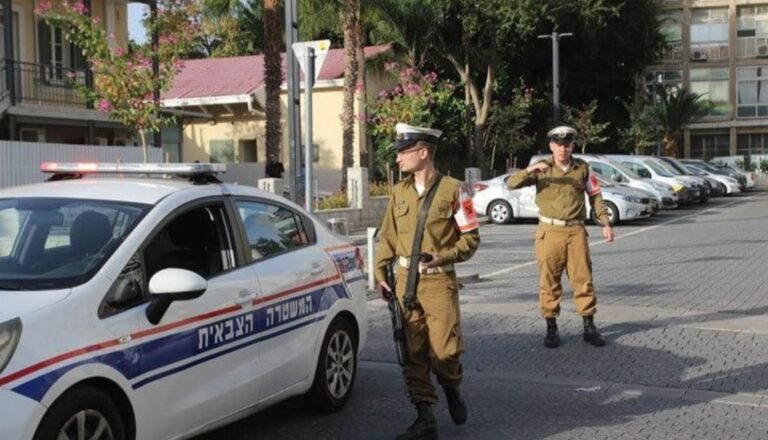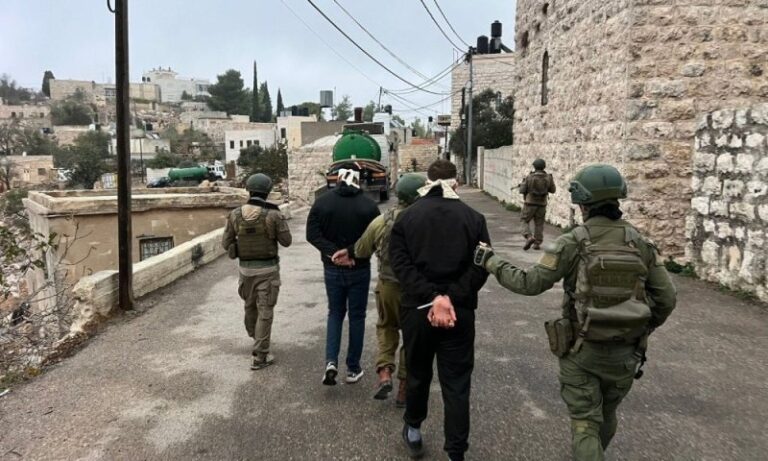 Armed security forces at a nuclear missile base failed a drill last summer that simulated the hostile takeover of a missile launch silo because they were unable to speedily regain control of the captured nuclear weapon, according to an internal Air Force review obtained by The Associated Press.
Armed security forces at a nuclear missile base failed a drill last summer that simulated the hostile takeover of a missile launch silo because they were unable to speedily regain control of the captured nuclear weapon, according to an internal Air Force review obtained by The Associated Press.
The previously unreported failure, which the Air Force called a “critical deficiency,” was the reason the 341st Missile Wing at Malmstrom Air Force Base in Montana flunked its broader safety and security inspection.
The security team was required to respond to the simulated capture of a Minuteman 3 nuclear missile silo, termed an “Empty Quiver” scenario in which a nuclear weapon is lost, stolen or seized. Each of the Air Force’s 450 Minuteman 3 silos contains one missile armed with a nuclear warhead and ready for launch on orders from the president.
The review obtained by the AP through a Freedom of Information Act request sought to examine why the security force showed an “inability to effectively respond to a recapture scenario.” It cited their failure to take “all lawful actions necessary to immediately regain control of nuclear weapons” but did not specify those actions.
The prize for terrorists or others who might seek to seize control of a missile would be the nuclear warhead attached to it. In 2009, the Air Force cited a “post-9/11 shift in thinking” about such situations, saying that while this nightmare scenario once was considered an impossibility, the U.S. “no longer has the luxury of assuming what is and what is not possible.”
The inspection failure was one of a string of nuclear missile corps setbacks revealed by the AP over the past year. The force has suffered embarrassing leadership and training lapses, breakdowns in discipline and morale problems. Earlier this year, Defense Secretary Chuck Hagel ordered two parallel nuclear reviews, still underway, to address his concern that these lapses could erode public trust in the security of the nation’s nuclear weapons.
The safety and security of nuclear weapons under military control is considered of paramount importance, and thus defense agencies perform detailed and rigorous inspections at regular intervals.
When the Air Force publicly acknowledged the inspection failure in August, it said “tactical-level errors” had been committed during one phase of the inspection, but it did not say the errors were made by security forces. At the time, the Air Force declined to provide details, saying to do so could expose potential vulnerabilities. Security forces, safety officers, logistics teams, missile launch crews and others participated in the Malmstrom inspection.
Lt. Col. John Sheets, a spokesman for Air Force Global Strike Command, which is responsible for the nuclear missile corps as well as the nuclear-capable bomber aircraft, said Wednesday he could not comment further.
“We cannot divulge additional details of the scenario or the response tactics due to it being sensitive information that could compromise security,” Sheets said. He added that all “countermeasures,” or corrective actions, that were proposed in the review obtained by the AP have been accomplished. The only exception is a plan for more extensive practicing of security response tactics at launch silos, a move that requires signed agreements with owners of the private land on which the missile silos are situated.
The Aug 5-13, 2013, inspection, designed to evaluate management and handling of nuclear weapons to ensure they are properly controlled at all times, was repeated two months later and found no security weaknesses.
Security forces are responsible for a range of protective roles on the Air Force’s three nuclear missile bases, including along roads used to transport missiles and warheads to and from launch silos; at weapons storage facilities; and at launch silos and launch control centers. The Air Force operates three Minuteman 3 bases — in North Dakota, Montana and Wyoming — each with 150 missiles.
The partially censored document provided to the AP describes in broad terms the nature of the inspection failure, its significance and its underlying causes.
It said insufficient training was at the heart of the problem, beginning with a lack of familiarity among the security forces with “complex scenario” exercises. It also cited unspecified shortcomings in “leadership culture” and a lack of standardized simulations not only at Malmstrom but throughout the nuclear missile corps.
Among the corrective measures cited in the report: Arrange to hold recapture exercises at one launch silo among the 50 silos in each of the 341st’s three Minuteman squadrons, using “realistic, varied, simple-to-complex” scenarios based on what the Pentagon calls its “local nuclear security threat capabilities assessment.” Also, the Air Force is taking steps to more closely track lessons learned from each “recapture” exercise.
The Air Force declined to further explain the August exercise scenario, but the document provided to the AP indicates that a security force team was told to recapture a Minuteman 3 missile launch silo within a certain time limit. It did not identify or otherwise describe the team, but each Minuteman 3 missile base has “tactical response force” teams specially trained and equipped for nuclear weapons recapture and recovery missions.
Two years ago, the Air Force promoted these teams as a “secret weapon” ensuring nuclear security, saying they are provided “an extensive amount of unique training and are expected to perform flawlessly in whatever scenario thrown their way.”
It is not clear from available records precisely what Malmstrom’s security forces did wrong or inadequately in the August exercise.
A section apparently elaborating on what was meant by the phrase “failed to take all lawful actions” was removed from the document before its release to the AP last week. The Air Force said this information was withheld in accordance with senior-level Pentagon orders “prohibiting the unauthorized dissemination of unclassified information pertaining to security measures” for the protection of “special nuclear material.”
Labeling the security forces’ misstep a “critical deficiency,” the report said that because security of nuclear weapons is paramount, “the inability to demonstrate effective recapture/recovery TTPs (tactics, techniques and procedures) detracts from the Wing’s ability to conduct its day-to-day mission.”
Col. Robert Stanley, who was commander of the 341st Wing at the time of the failure, said at the conclusion of the inspection that to publicly reveal details of the results would “give America’s adversaries far too much information about how we operate.” Despite the inspection failure, “there was no question about our capability to operate safely and with complete confidence,” Stanley said, adding nonetheless that more needed to be done to ensure that “some very young airmen” understand their responsibilities “much more clearly.”
Nine days later he fired the officer in charge of his security forces, Col. David Lynch, and replaced him temporarily with Col. John T. Wilcox II. In March, Stanley resigned amid a scandal involving alleged cheating on proficiency tests by up to 100 missile officers at Malmstrom, and the Air Force replaced Stanley with Wilcox.
In an AP interview in January, Stanley suggested there had been disagreement about how the security exercise was conducted during the August inspection. Without providing specifics, he said it was simulated “in a way that we’ve never seen before,” adding: “It confused our airmen. We were off by a matter of seconds.”
The 341st has had other security-related problems over the past year. It disciplined two launch control officers who broke security rules on May 31, 2013, by leaving open the blast door to their underground command center when a maintenance person arrived while one of the two crew members was asleep. Compounding the error, the crew commander and his deputy initially lied to their squadron commander in an attempt to hide the violation.
The 341st also has at least two missile launch officers under criminal investigation for alleged illegal drug use or possession.
(AP)










